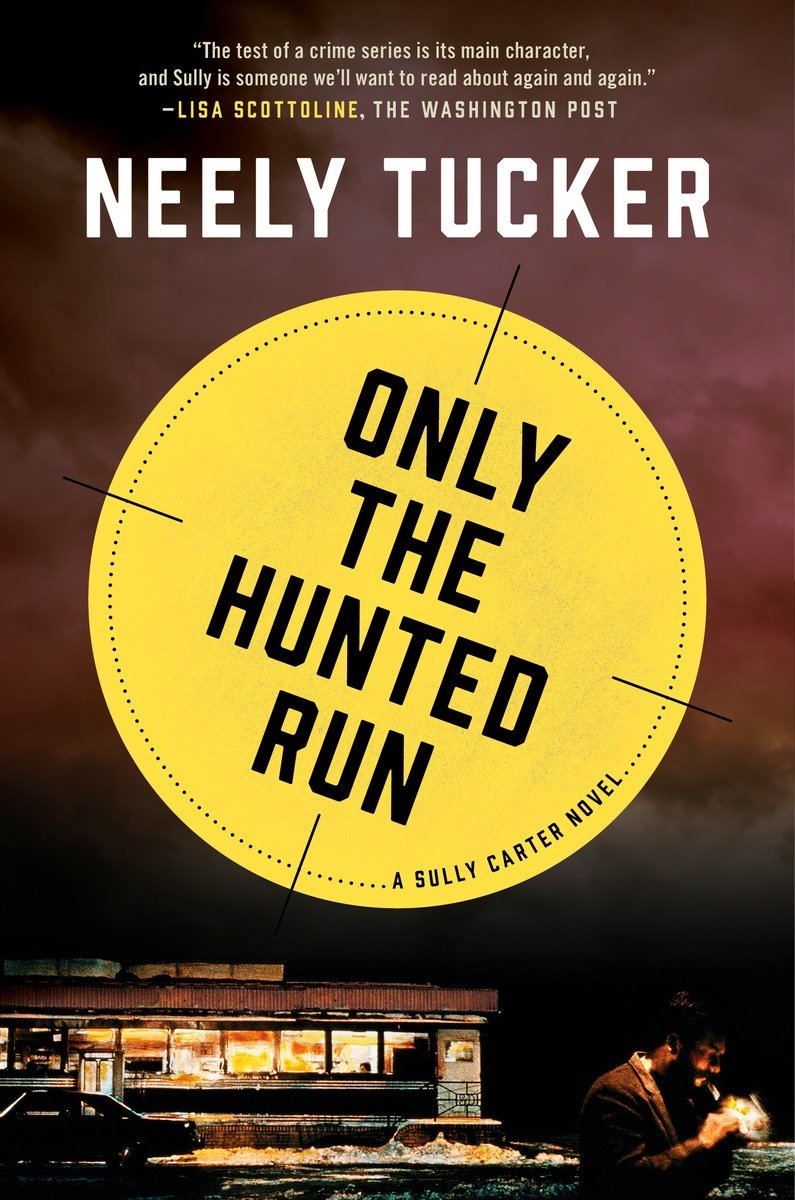
Only the Hunted Run
Sully Carter Series, Book 3
کتاب های مرتبط
- اطلاعات
- نقد و بررسی
- دیدگاه کاربران
نقد و بررسی

June 20, 2016
At the outset of Tucker’s provocative third Sully Carter novel (after 2015’s Murder, D.C.), the D.C. journalist hears shots and screams while on a visit to the Capitol. Carter follows the shooter deep into the building, where he stumbles on the body of Barry Edmonds, an Oklahoma representative, who has an ice pick driven through each eye. The killer, who identifies himself as Terry Waters, escapes the scene. Waters later becomes obsessed with Carter, and calls him to commiserate about the fact that both their mothers were murdered years earlier. Once Waters is apprehended in yet another shoot-out, Carter travels to the Oklahoma Indian reservation where Waters claims to hail from, hoping to learn what has driven the man to kill. What Carter finds is unexpected. Meanwhile, Waters is being held at St. Elizabeths, a real-life mental hospital in southeast D.C., with which he’s obsessed. Tucker, a staff writer at the Washington Post Magazine, realistically depicts the newspaper industry in this terrifying thriller. Agent: Elyse Cheney, Elyse Cheney Literary.

Starred review from July 15, 2016
A mass slaughter in the Capitol building sets off this third tense and twitchy installment in the adventures of investigative reporter Sully Carter.Any Washington, D.C. resident with common sense knows that the nation's capital is the last place you want to be at the peak of summer, with its swampy air mass and the kind of heat that's "a hammer [hitting] you in the face." Nevertheless, Sully is carrying out a routine newspaper assignment beneath the Capitol dome when sounds of gunfire and screaming shatter the doldrums. Sully's war-correspondent instincts kick in as he weaves around the dead and dying toward the shooting's source. What he eventually finds is even more horrific: the bound-and-gagged corpse of an Oklahoma congressman with ice picks protruding from both eye sockets. He also hears as the shooter calls 911 and gives his name as Terry Waters before making a clean getaway from police. Things become more bizarre between Waters' escape and eventual arrest as he seems to adopt Sully, via phone, as his intermediary to authorities. (The gunman finds out that he and Sully have something in common: they both, at very young ages, lost their mothers to violence.) After Waters is indicted, he is committed to D.C.'s notorious St. Elizabeths mental hospital. Sully's editors dispatch him to Oklahoma for more background on the killer, maybe even a motive. Sully finds all of that and more, far more, than he or anybody else expects, including the reader. What seems at the outset to be an exercise in formulaic "psycho killer" pyrotechnics becomes in Tucker's hands an ingenious, expectation-trumping mystery that doesn't scrimp on suspense or shock tactics. Those who have, after this novel's two predecessors (Murder, D.C., 2015, etc.), become enamored with the embittered but urbane journalist may find less of his complicated personal life here. But they will find plenty more reasons to admire and even like Sully Carter. Tucker raises the stakes and ramps up the darkness in this series and makes you wonder, and even worry a little about, what's coming next.
COPYRIGHT(2016) Kirkus Reviews, ALL RIGHTS RESERVED.

July 1, 2016
Readers hooked on noir will recognize Sully Carter right offanother lush with a secret sorrowbut it's their loss if they turn away. Sully is a reporter for a D.C. daily and salts his conversation with enough literary allusions to keep bookish readers interested. We meet him in the middle of a story he hadn't planned to cover: he's in the Capitol Building when a gunman roars through the halls. The maniac has a chance to waste Sully but spares him, for reasons that don't remain mysterious for long. The shooter is captured and sent to a mental hospital for evaluation. Sully sneaks in to interview him and learns he's part of the killer's master plan. In fact, they have something in common. More fire and death follow, graced by allusions to William Faulkner. We can hear Faulkner, too, in stretches of Tucker's rhythmic, acoustic prose and in the underlying message within this powerful thriller: ignore the pleas of the powerless, and awful things happen. Suggest Tucker to readers of James Sallis' Turner novels.(Reprinted with permission of Booklist, copyright 2016, American Library Association.)

























دیدگاه کاربران